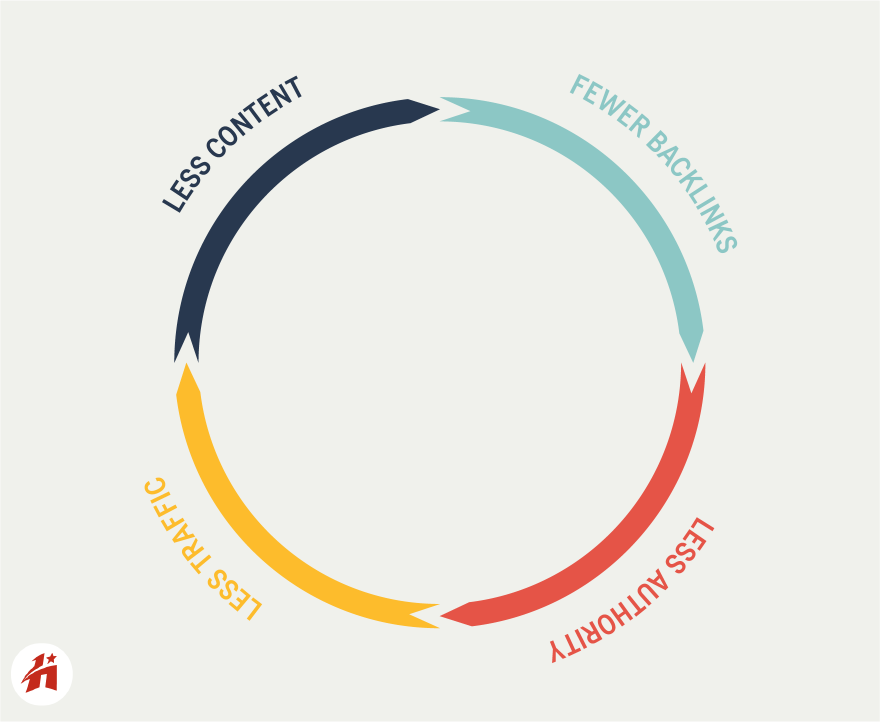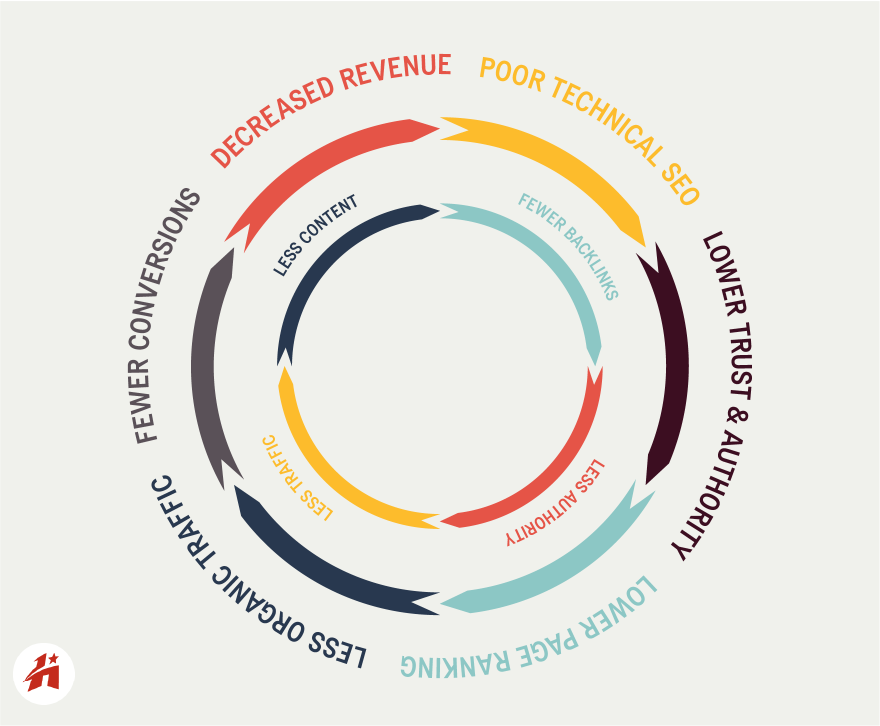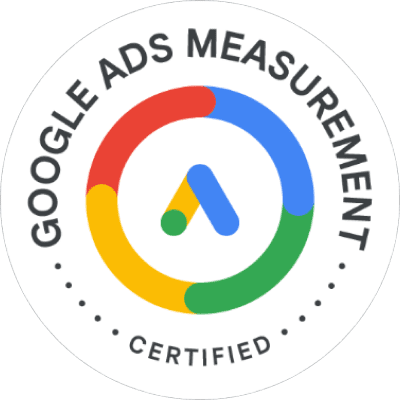As a marketer, you might find yourself asking, “How long do I need to be doing SEO?” It’s a reasonable question. After all, you want to know how long you’ll need to commit resources to your SEO efforts.
The short answer is that SEO should be an integral part of your marketing strategy for as long as it’s important for potential customers to find your business online.
The long answer to fully understand why SEO is a long-term commitment and what that means for your business, needs some explaining. Let’s start with the basics.
What Is SEO?
SEO, or Search Engine Optimisation, is a strategic approach aimed at improving both the quality and quantity of website traffic through organic search results. While it involves technical aspects, a robust SEO strategy focuses more on understanding and catering to people’s needs than on manipulating search engine algorithms.
The essence of SEO lies in grasping what users are searching for (search intent), providing the answers they need using their language, and presenting the information in an appealing and easy-to-understand format.
Effective SEO techniques customise content in such a way that allows search engines to index it accurately and assess its relevance to users’ search queries.
Why Is SEO Important?
SEO is important for connecting with people who need your product or service. With 93% of online experiences kicking off with search engines, these platforms serve as the primary link between your customers and your website. If you’re not showing up in search results, chances are, you’re not being found at all.
What About PPC?
Many businesses turn to Pay-Per-Click or PPC advertising to address this search visibility problem. When they can’t achieve desired organic search results, they invest in PPC to try reaching that 93% of potential online clients.
However, PPC and SEO serve different purposes.
Consider, for a minute, that 93% of online sessions starting with an search engine query. When users look for answers, they expect 2 main results:
- Finding a solution to their problem, and
- Forging a bond of trust with the resource that provided the answer.
Trust plays a significant role here. Psychologically, when someone helps us, it creates a sense of trust. Content providers earn goodwill by sharing their expertise generously.
Organic traffic is highly valued, not just because it can be more cost-effective than PPC but because it carries more credibility.
While PPC is a vital part of your digital marketing strategy, comparing PPC with SEO does a disservice to both. Ads often lack credibility and are frequently seen as intrusive. Additionally, the ROI from PPC is directly tied to your spending—stop paying, and the clicks stop coming.
SEO Is a Journey, Not a Destination
Effective SEO is a long-term strategy, not a one-time fix. Consistent SEO efforts over time yield significant benefits, with improvements snowballing to drive further growth. While achieving top search rankings may require patience, persistent work leads to steady progress and establishes your website’s credibility.
Earning recognition from search engines like Google, though challenging, can significantly increase site traffic. Imagine adding multiple lanes to a highway –– this increase in visibility translates to a surge of potential customers effortlessly finding your business online.
SEO is an ongoing process, not a finite destination. The digital environment constantly evolves, with new competitors emerging, search algorithms changing, and user preferences shifting, all of which can impact your organic website traffic. A single weeding session won’t guarantee a flourishing harvest, but with consistent care and attention you’re sure to see some fruit.
Reasons You Might Want to Quit Doing SEO
Ironically, the 2 most common reasons businesses stop their SEO efforts are two sides of the same coin:
- I haven’t achieved my goals.
- I have achieved my goals.
Don’t Quit Before You Win
If you’re considering giving up on SEO because you haven’t seen the desired results as fast as you’d hoped, take a moment to reassess your expectations. Are they realistic? Were you promised an overnight surge of customers flooding your digital doors? It might be time to recalibrate your goals. Let’s explore this further.
Set Realistic SEO Goals
Aiming high is commendable, but it’s also important to understand where you can realistically achieve success and incrementally update your SEO goals from there.
Review your past analytics and set predictive goals based on existing data. A reliable SEO partner can provide benchmarks informed by a competitive analysis and offer recommendations tailored to your business objectives.
Remember: more traffic is excellent, but sustainable growth comes from traffic that converts.
If your expectations are realistic, but the results are still lacking, your SEO strategist should be able to explain why in plain English (no jargon) and suggest ways to fill gaps in your current strategy or new actions to better align with your SEO goals.
Effective SEO requires what any effective strategy does: experimenting, learning, and growing. It’s about integrating these lessons into future activities to make them more impactful. Your competitors who top the search rankings are utilising effective SEO strategies. Don’t give up just because you haven’t found yours yet. SEO takes time.
Be Patient
Achieving stellar SEO results isn’t a matter of a quick dash down the street. Due to Google’s intricate method of assigning authority to web pages, it can take months, sometimes well over a year, to witness truly sustainable gains in search rankings. This is why reliable SEO agencies avoid month-to-month contracts – they understand that constructing a robust SEO foundation necessitates time for momentum to build.
A healthy dose of scepticism is essential when encountering promises of lightning-fast SEO victories. Overnight surges in traffic often stem from underhand tactics that Google will inevitably penalise in due course.
Don’t Quit While You’re Ahead
Cracking the top spot for a desired keyword in SERPs is a cause for celebration, well done! But, it’s also important to remember that SEO is a continuous pursuit, not a destination. Just like a marathon runner with a seemingly comfortable lead, your competitors are steadily closing the gap. They’re working hard to reclaim that coveted position.
To maintain your hard-earned advantage, you’ve got to sustain your SEO efforts. Reaching that coveted #1 spot has equipped you with valuable knowledge about what SEO strategies resonate with search engines. Now, you can leverage this expertise to craft a long-term SEO plan for serious gains.
However, a lapse in focus on SEO is an open invitation for your competitors to swoop in and steal your thunder. Be diligent to retain your lead in search results.
If You Stop…
If You Stop Posting Content
Without fresh content, you miss opportunities to:
- Rank for new and optimise for semantic keywords as Google’s algorithm continues to evolve. Fewer keywords result in reduced traffic.
- Get backlinks from other sites, leading to less traffic.
Stopping SEO content production engine has repercussions that extend beyond SEO and impact other elements of your marketing strategy:
- Reduced traffic leads to fewer conversions and a slower-growing email list.
- Loyal customers, who rely on your valuable insights, will become frustrated with the lack of fresh content.
- Decreased customer engagement lowers the number of searches for your brand name, which Google uses as an indicator of a quality website.
The bottom line: high-quality, keyword-targeted SEO content drives prospective customers to your site. Quitting SEO content posting results in a vicious cycle: less content means fewer backlinks and lower page authority, leading to fewer conversions and reduced revenue. The only way to break this cycle is to resume your targeted SEO content creation.

If You Stop Making Technical Improvements
Stellar technical SEO facilitates Google’s indexing and understanding of your site, projects trustworthiness, and increases your Search Visibility Score. Neglecting technical optimisation leads to issues that initially appear sporadically but compound over time:
- Poor technical SEO makes it hard for search engines to index your site, hampering your content’s visibility in search results.
- Regular code audits are essential for maintaining optimal page experience metrics. Slow loading times and poor mobile performance is likely to damage your search ranking, particularly after the 2021 Core Web Vitals update.
- An outdated robots.txt file may direct Google crawl bots to index areas of your site you don’t want in search results or ignore pages you do want indexed. Multiple website stakeholders often necessitate frequent updates to the robots.txt file.
- Broken links or outdated redirects signal to Google that your site is in disrepair. Regular sweeps to find and fix these are essential.
When your website fails to adhere to evolving technical standards, Google assigns lower trust and authority to your content. This further fuels the vicious cycle of declining page ranking, reduced organic traffic, fewer conversions, and ultimately, decreased revenue:

If You Stop Building New Pages
Everything is constantly evolving. Your competitors are innovating, Google’s algorithms are changing, and to stay ahead, you need to adapt as well. The best way to stay on top of things is to keep adding or updating pages to your site that clarify your product or service offerings to prospects and customers:
- Without new pages that segment your product offerings, you miss opportunities to rank for long-tail keywords.
- Ranking for fewer long-tail keywords means you won’t attract highly qualified customers who are most likely to convert.
- A consistent flow of new content helps you maintain momentum in keyword growth.
Landing pages specifically designed for user search intent attract highly relevant traffic, converting visitors into customers. By neglecting to create new pages, you’re essentially handing potential customers over to SEO-savvy competitors. This lack of long-tail keyword targeting can lead to a cumulative decline in ranking and organic traffic.
The Opportunity Cost of Quitting SEO
A consistent SEO strategy builds momentum, leading to higher authority and improved rankings. Conversely, neglecting your SEO efforts initiates a downward spiral that will need to be reversed. It requires less effort to maintain forward momentum than to recover lost ground. The most expensive aspect, both in terms of time and money, is reversing a downward trend.
You might not realise you’re in this downward spiral until its negative impacts become apparent – on your leads, conversion rates, and more. Regardless of how you view it, easing up on your SEO efforts opens the door for competitors to capture your customers and divert them from your business. Rankings and traffic aren’t monitored out of vanity – they’re directly linked to conversions, sales, and revenue.
Find a Trusted SEO Partner
eveloping an effective SEO strategy that remains in harmony with your business goals is a multifaceted endeavour (have a look at our SEO case studies for some examples). A top-notch SEO agency will vigilantly monitor your metrics and provide recommendations based on shifts in the competitive landscape, algorithm updates, and your company’s evolving needs.
You should expect a reliable SEO agency to keep a close watch on your competitors, identify new keyword opportunities, suggest new product and service pages, and advise on keyword-rich content to publish. They ought to be readily available to offer guidance whenever you have questions or concerns.
Quitting SEO is a bad idea – big time!
Instead, make SEO an integral part of your ongoing marketing efforts and choose an SEO partner you can trust. As your steady progress gains momentum and you reap the compounded benefits over time, you’ll wonder why you ever considered stopping SEO. For a free SEO consultation, you’ve come to the right place.




